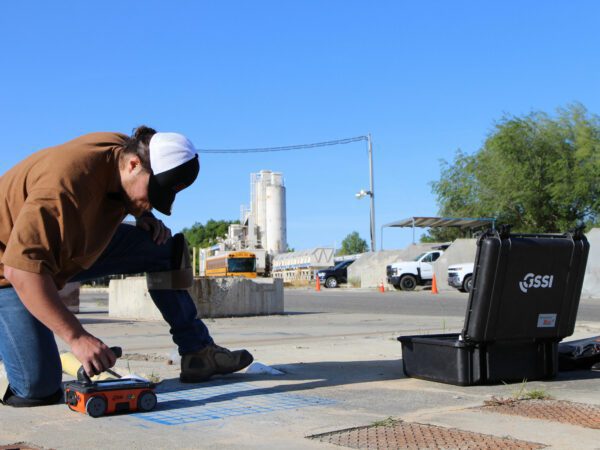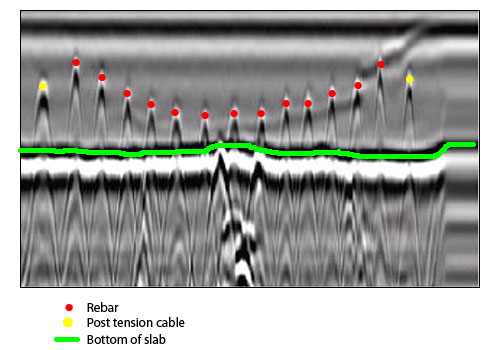Elevate Your Building Process With the Strategic Insights of Concrete Scanning for Enhanced Productivity
In the world of modern building and construction methods, the mission for effectiveness and precision is extremely important. Welcoming cutting-edge technologies has actually come to be a cornerstone for attaining these purposes. One such modern technology that has transformed the construction market is concrete scanning. By using the strategic understandings supplied by concrete scanning, building professionals can open a realm of improved productivity and streamlined procedures. The ramifications of incorporating concrete scanning go far past surface-level advantages, offering a profound influence on project end results.

Advantages of Concrete Scanning
Enhancing task efficiency and safety, concrete scanning offers a non-destructive method for detecting covert items within concrete structures. By utilizing technologies such as ground-penetrating radar (GPR) and concrete x-ray imaging, construction teams can properly situate rebar, post-tension cable televisions, electric avenues, and other blockages prior to exploration, cutting, or coring right into concrete.
The benefits of concrete scanning are many. Building and construction websites can be complex atmospheres, and knowing what exists underneath the surface area can avoid injuries and mishaps.
Additionally, concrete scanning advertises overall project performance by stopping and enhancing workflows rework. By determining possible concerns early on, groups can adjust their plans proactively, saving time and resources over time. In essence, the fostering of concrete scanning innovations is a calculated financial investment that pays returns in terms of cost-effectiveness, safety and security, and performance.
Technology Assimilation for Performance
Concrete scanning's ability to improve operations and enhance task efficiency can be additional maximized through strategic combination of cutting-edge innovations. By including Building Details Modeling (BIM) software into concrete scanning processes, building and construction teams can attain a greater degree of accuracy and sychronisation. Additionally, the integration of Enhanced Truth (AR) technology with concrete scanning can improve on-site visualization, permitting task supervisors and employees to overlay electronic information onto the physical setting in genuine time.
Preventing Costly Mistakes
How can thorough interest to information during concrete scanning processes help construction groups in stopping pricey mistakes? By using advanced scanning modern technologies such as Ground Penetrating Radar (GPR) and electro-magnetic induction, building and construction teams can properly identify rebar, utilities, spaces, and other obstructions within concrete structures. Furthermore, concrete scanning aids in making certain architectural stability by identifying weaknesses or problems in the concrete very early on, permitting for timely fixings and modifications.
Enhancing Project Management
Careful focus to detail throughout concrete scanning processes not only assists in preventing costly errors however likewise lays a strong structure for reliable job administration in building and find this construction undertakings. By including concrete scanning technology into project administration methods, building and construction groups can simplify workflows, enhance communication, and make sure that tasks stay on track.
Concrete scanning offers useful understandings into the architectural integrity of existing components, enabling job managers to make enlightened decisions relating to design modifications or construction series. This positive approach reduces the risk of unforeseen delays or revamp, ultimately conserving time and resources. Additionally, the information gotten from concrete scanning can be integrated into Structure Information Modeling (BIM) platforms, enabling real-time collaboration and sychronisation amongst numerous stakeholders.
Moreover, concrete scanning assists job managers determine prospective threats or obstacles before they intensify into bigger concerns, advertising a more secure workplace for all entailed. With boosted exposure and precision given by concrete scanning modern technology, task managers can properly plan, keep track of, and carry out construction projects with better effectiveness and self-confidence.
Maximizing Productivity
One key facet of making best use of productivity is through the adoption of concrete scanning technology. By utilizing ground-penetrating radar (GPR) and other scanning approaches, construction groups can properly find rebar, channels, and various other subsurface components, minimizing the risk of costly errors and delays throughout excavation and exploration.
In addition, welcoming Structure Information Modeling (BIM) software application can considerably improve efficiency by producing thorough 3D versions that boost job visualization and sychronisation amongst different trades. BIM enables better clash discovery, enabling issues to be navigate here identified and resolved before building and construction also begins, saving time and sources over time.
Executing a lean building approach, which concentrates visite site on eliminating waste and enhancing effectiveness across all task stages, is one more efficient strategy for maximizing performance. By promoting partnership, communication, and continuous renovation, building teams can work extra cohesively towards achieving job objectives in a effective and streamlined way.
Final Thought
To conclude, the calculated application of concrete scanning in the building procedure offers many advantages, consisting of raised efficiency, expense savings, enhanced task management, and improved performance. By incorporating this innovation, building and construction teams can prevent costly mistakes, enhance their procedures, and optimize their overall task result. Concrete scanning is a useful device that can boost the building and construction process and result in even more effective and profitable end results.
